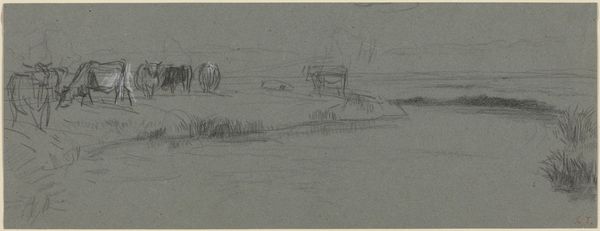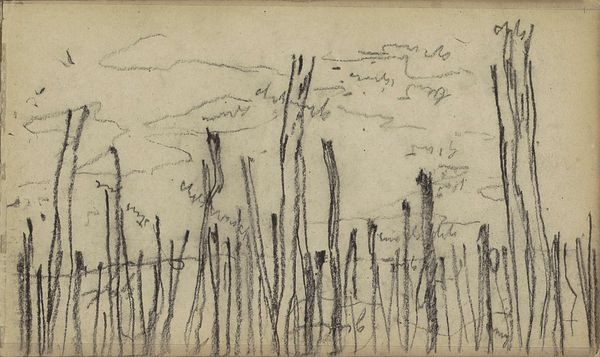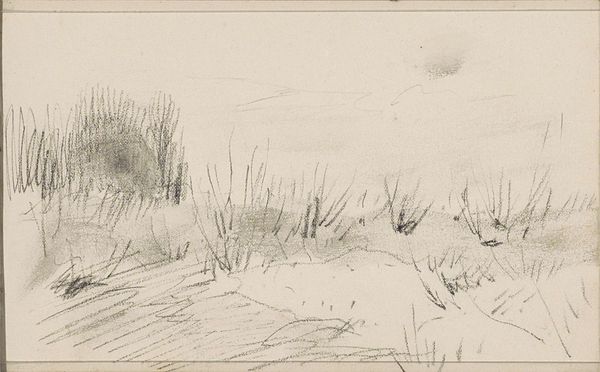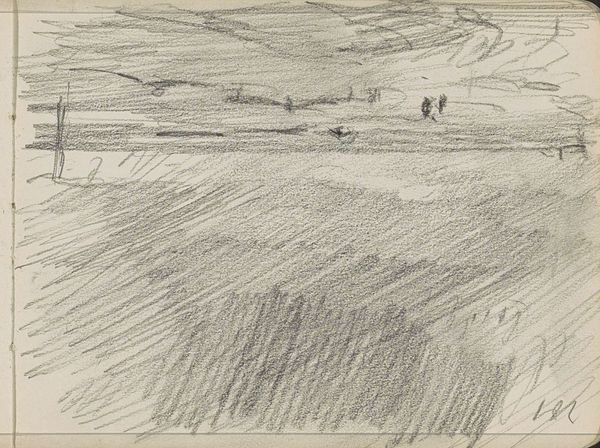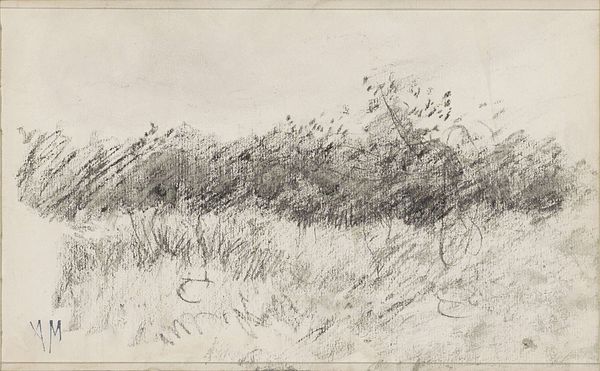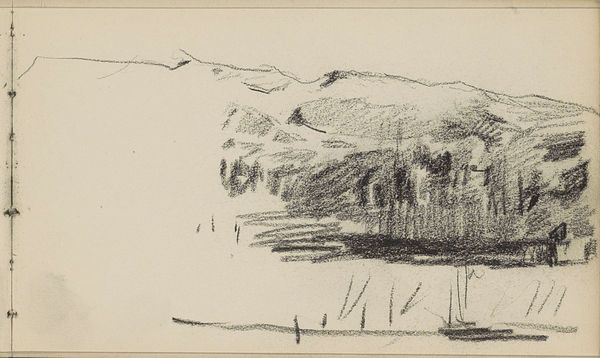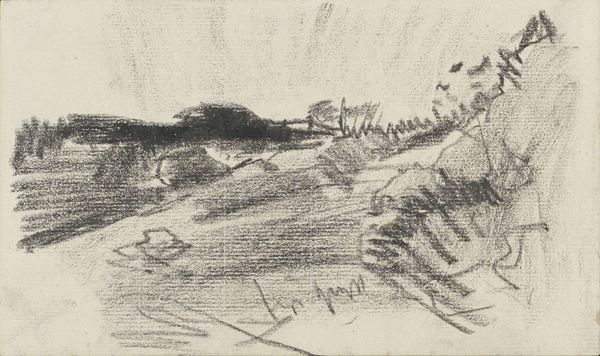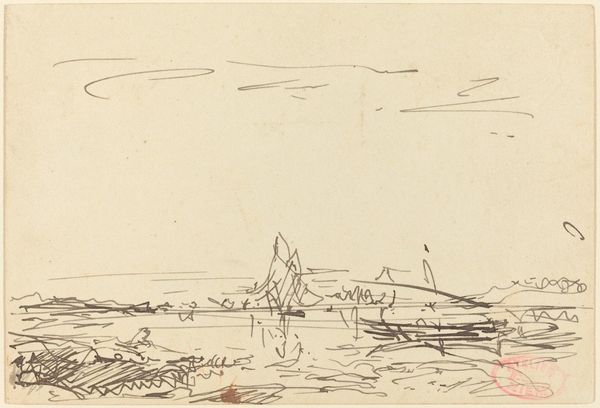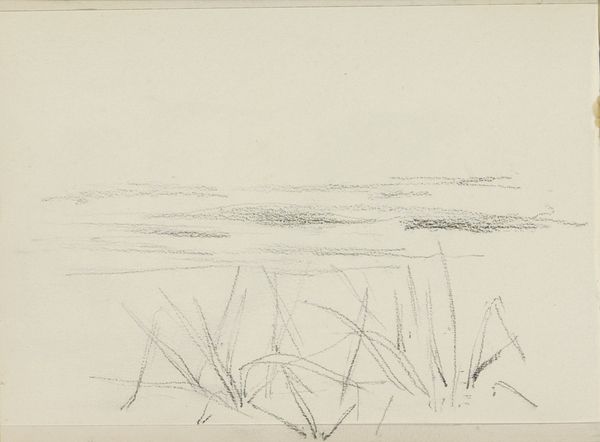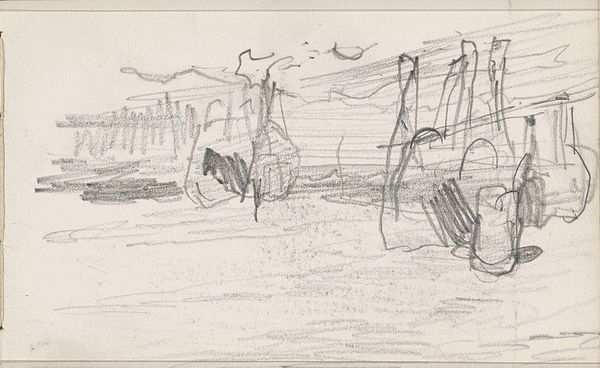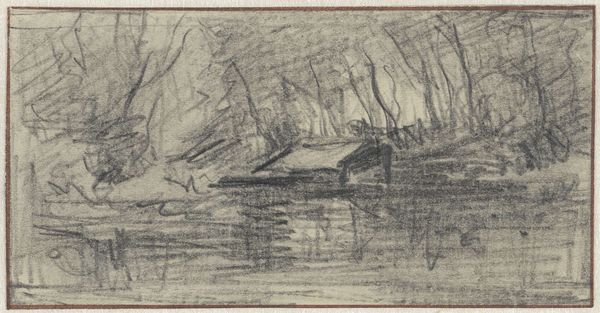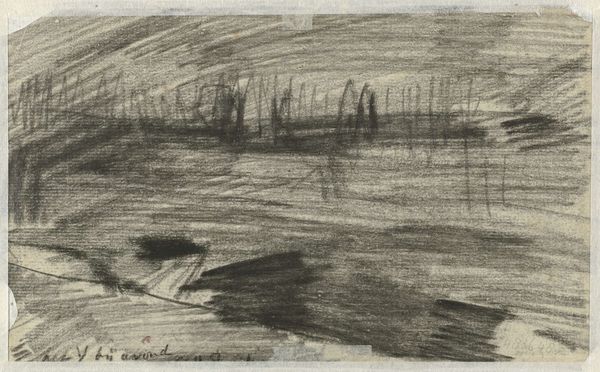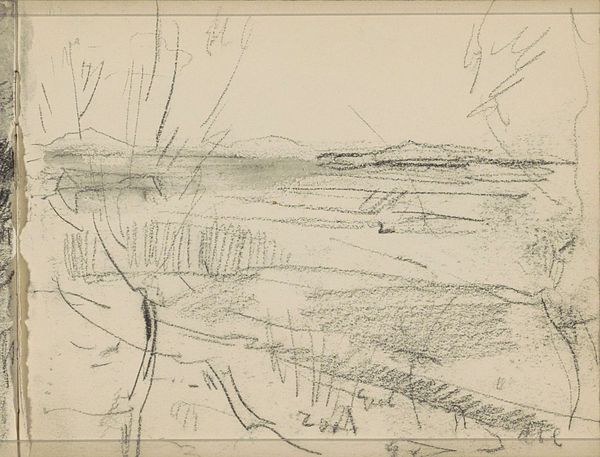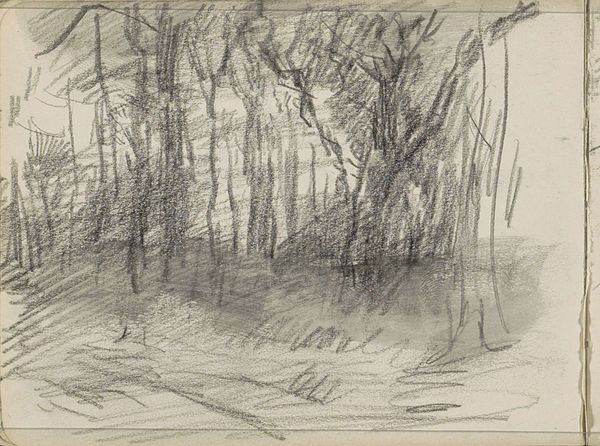
#
amateur sketch
#
light pencil work
#
pen sketch
#
pencil sketch
#
incomplete sketchy
#
ink drawing experimentation
#
pen-ink sketch
#
sketchbook drawing
#
sketchbook art
#
initial sketch
Dimensions: height 225 mm, width 300 mm
Copyright: Rijks Museum: Open Domain
Curator: Jozef Israëls, known for his sensitive portrayals of Dutch peasant life, also sketched landscapes like this one we’re looking at, titled "Schets van een landschap", placing it roughly between 1834 and 1911. Editor: My first impression? Quiet. Almost melancholic. It’s spare, reduced to just a few essential lines. What do you make of it formally? Curator: Indeed. The composition hinges on the delicate interplay between the drawn and the undrawn, a dialogue that speaks to the work's inherent incompleteness. Look at how the sketch suggests rather than dictates—the implied horizon, the scattered lines forming what appears to be wild grass or reeds. Editor: There’s a definite sense of transience about it, a fleeting moment captured with remarkable efficiency. It’s more about capturing a feeling, or the idea of a place, than representing it faithfully. Curator: Precisely. Semiotically, one could read the varying pressure of the pencil strokes as indices of the artist's emotional state or shifting perspective. The lightness almost allows it to dissolve. Editor: You know, it’s funny, seeing it like this makes me wonder about all the drawings and half-formed thoughts artists leave behind. These glimpses into their process are strangely intimate, more so, maybe, than the finished works themselves. Like catching a whisper of something profound. Curator: That sense of intimacy, I believe, is tied to the raw, unfiltered expression characteristic of sketches. The absence of elaborate detail invites the viewer to complete the image, actively participating in its creation. Editor: Right, it almost asks, “What do you see here? What does this evoke in *you*?” Which I suppose is the point of art, isn’t it? I get the sense Israëls was feeling something specific at that spot... the bleakness and the utter sparseness reminds me a bit of Samuel Becket or even a gothic novel. Curator: That resonance underscores the power of the visual language at play here, a dialect spoken fluently by line, tone, and void. This isn't merely a sketch; it's a carefully constructed absence. Editor: Absence… yes. It’s like a haiku carved in pencil, speaking volumes with only a handful of lines. Now, if only I could find *that* level of distillation in my own work... Curator: Perhaps, indeed.
Comments
No comments
Be the first to comment and join the conversation on the ultimate creative platform.
